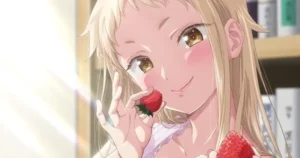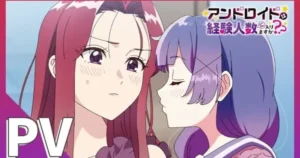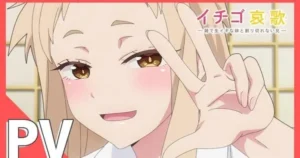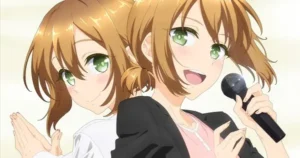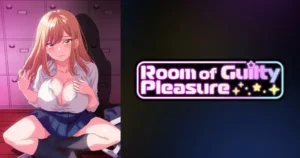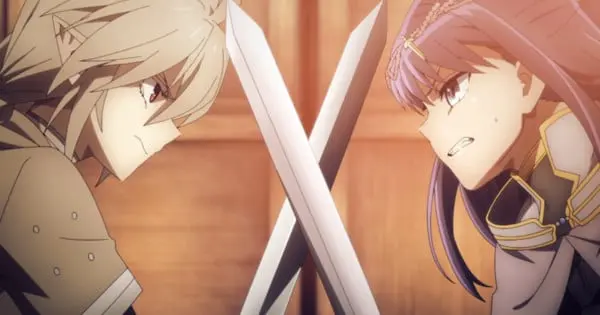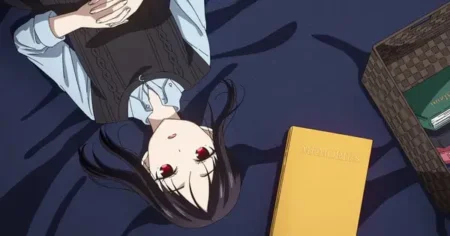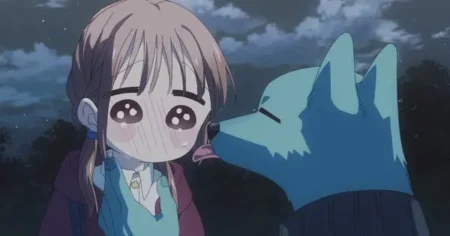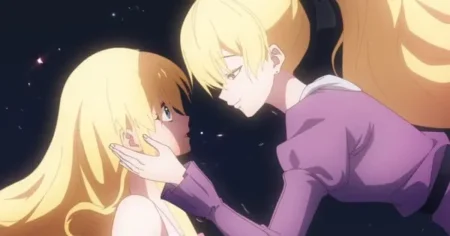Übel Blatt, the dark medieval fantasy manga, has finally received an anime adaptation, but not without controversy. Episode 9, titled “Junge Blätter (Young Leaf)”, continues the story of Köinzell, a young swordsman seeking revenge, while also highlighting the significant changes made from the source material, sparking debate among fans. The episode premiered on March 8, 2025, and delves deeper into Köinzell’s past and the motivations of the Seven Heroes, the apparent antagonists.
Episode 9: “Junge Blätter (Young Leaf)” – A Summary
Episode 9 of Übel Blatt introduces new elements to the overarching narrative while furthering existing plotlines.
- Ichfeis’s Manhunt: The episode reveals Ichfeis, a slave knight and the strongest swordsman, who seeks to reclaim the title of Blatt Meister. Marquis Glenn, one of the Seven Heroes, tasks Ichfeis with hunting down Köinzell, the “Hero Killer”. This sets up a potential confrontation between Ichfeis and Köinzell, adding another layer to the power struggles within the story.
- Köinzell vs. Elsaria: Köinzell’s battle against Elsaria and her allies in the Free City of Jullas Abllas escalates. The fight choreography is highlighted as fluid and strategic. Aht, eager to prove herself, rushes into battle but sustains a grave injury due to her inexperience.
- Glenn’s Confession and Ascheriit’s Past: Glenn confesses to sword teacher Glea about his “sin” of killing Ascheriit twenty years ago, but provides a potentially fabricated story of Ascheriit’s treachery. Glea, who was close to Ascheriit, grieves his death but recognizes the stability that Glenn and his allies have brought to the kingdom. This scene strongly hints at a connection between Ascheriit and Köinzell, suggesting that Köinzell may be Ascheriit seeking revenge.
- Attack on Jullas Abllas: The city of Jullas Abllas comes under attack, seemingly by the forces of Governor Batterygrave Barestar, another of the Seven Heroes. Batterygrave is portrayed as unstable, experiencing hallucinations and ordering the destruction of the city and the “Hero Killer.” This suggests deeper corruption within the Seven Heroes, potentially justifying Köinzell’s quest for vengeance.
- Aht’s Growth and Köinzell’s Care: Despite Köinzell’s harsh words, he shows care for Aht and wants to protect her from danger. He tells Aht to leave him, deeming her lack of experience a liability. Her fighting style impresses Köinzell, reminding him of the strong will his former mentors wanted to instill in their students.
Anime Adaptation Controversies: Censorship and Story Changes
The Übel Blatt anime adaptation has faced criticism for heavily censoring content from the original manga. This has led to a polarized audience, with some fans feeling betrayed by the changes and others applauding the removal of explicit content.
Censorship of NSFW Content
The anime adaptation has removed or toned down many of the manga’s violent and erotic scenes. Director Takashi Naoya explained that the decision to remove erotic elements was made to focus on Köinzell’s journey of revenge and his emotional growth. The director aimed to emphasize Köinzell’s evolution as he overcomes his fury and learns to trust again.
- Skipped Story Arcs: The anime has skipped two of the biggest story arcs of the manga, resulting in the absence of major villains and battles.
- Removed Scenes: Explicit nudity and sexual encounters have been removed, including a scene between Koinzell and Altea in the first episode.
- Toned-Down Violence: The brutality of some deaths has been toned down, reducing the overall intensity of the dark fantasy elements.
Storyline Alterations
In addition to censorship, the anime has made significant changes to the storyline, which has further upset some fans.
- Skipped Prologue: The anime adaptation has skipped the crucial first three chapters of the manga, which delve into Koinzell’s betrayal and the events leading to his revenge. This backstory is instead showcased in the opening sequence.
- Villain Omission: Key villains like Kfer and Gustav, who play significant roles in the manga’s early stories, have been omitted from the anime adaptation.
Fan Reactions and Author’s Involvement
These changes have generated mixed reactions from fans. Some argue that the censorship betrays the spirit of the original work, distancing the series from its realistic, dystopian medieval setting, which often presents graphic violence and abuse. Others applaud the changes, arguing that the exaggerated sexual content distracts from the main plot and downplays the action, fantasy elements, and worldbuilding.
According to an interview with the anime’s producer, Yuki Watanabe, these changes have been consulted and approved by the author, Etorouji Shiono. This suggests that the author is supportive of the anime’s direction, even with the significant alterations.
Expertise and Production
The Übel Blatt anime is produced by studios Satelight and Staple Entertainment. Takashi Naoya serves as the director, with Tatsuya Takahashi handling series composition and screenwriting. Kiyoshi Tateishi is responsible for character designs.
The anime’s voice cast includes:
- Yuya Hirose as Köinzell.
- Hina Tachibana as Peepi.
- Toshiki Masuda as Wied.
- Hitomi Ueda as Altea.
- Yui Kanari as Aht.
- Kenichirou Matsuda as Geranpen.
- Kohsuke Toriumi as Fargo.
- Ryota Suzuki as Rangzatz.
- Kazuhiko Inoue as Marquis Glenn.
- Taiten Kusunoki as Schtemwölech.
- Naoya Uchida as Batterygrave Barestar.
Reception and Overall Impression
The Übel Blatt anime adaptation has received mixed reviews. While some praise its animation and attempts to capture the essence of the manga, others criticize its rushed pacing, unnecessary censorship, and uninspired action.
One reviewer at Anime News Network noted that even average quality episodes only reinforce disappointment in what could have been had Übel Blatt received a competent adaptation. The reviewer criticized the clumsy info-dumps, bargain-basement animation, and characters sliding across the screen like frozen video game sprites during battle scenes.
Another review highlights the anime’s failure to capture the essence of the original manga, citing poor storytelling choices, watered-down content, and lackluster animation. The reviewer concludes that fans of the manga will likely be frustrated, while newcomers will be left confused.
Despite the criticisms, some viewers appreciate the anime’s focus on Köinzell’s emotional journey and the exploration of themes such as revenge, trust, and redemption. However, the censorship and storyline alterations remain a significant point of contention for many fans of the Übel Blatt manga.

